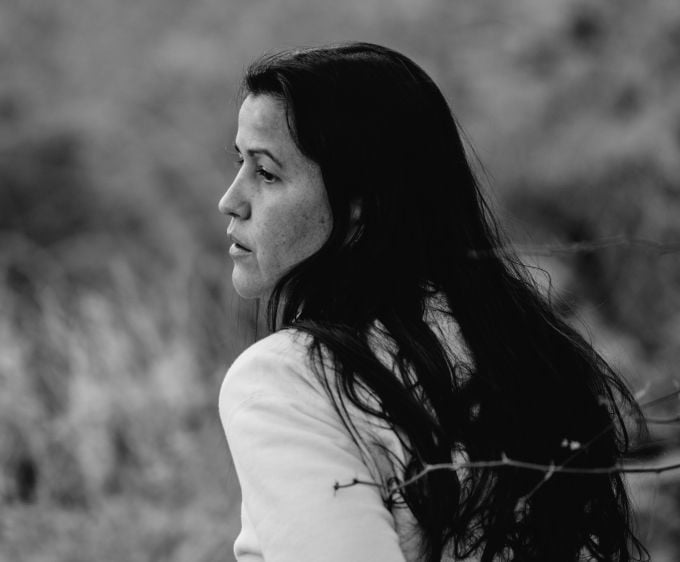
Natalie Díaz
Natalie Díaz was born in 1978 in Needles, California. She grew up on the Fort Mojave reservation on the border of California, Arizona, and Nevada. Her native language is Mohave, the language of the northernmost River Yuma people. Díaz attended Old Dominion University in Norfolk, Virginia, where she successfully played on the women’s basketball team and reached the NCAA finals in her freshman year. After playing professional basketball in Europe and Asia, she returned to Old Dominion University and earned a master’s degree in poetry and fiction in 2006.
Her literary writing has appeared in numerous periodicals, including »Narrative«, »Poetry Magazine«, »Drunken Boat«, and »Iowa Review«. Díazʼs first book of poetry, »When My Brother Was an Aztec« (2013), was nominated for a PEN/Open Book Award. In this work, Díaz reflects on the experience of Native American life on reservations, interspersed with historical and cultural layers. The lyrics in the middle section focus on the titular brother, who is addicted to crystal meth and whose »shadow flutters from his shoulders, a magician’s cape«. The collection also includes love poems that focus primarily on subtle descriptions of the female body. In 2018, Díaz was awarded the prestigious MacArthur Fellowship. Two years later, she published her most recent literary work, »Postcolonial Love Poem« (2020). The texts in the volume are a latticework of forms of expression for light and colour; the central theme is violence – against indigenous peoples, against human bodies in general, against girls and women in particular, but also the violence of the Christian religion. The human body becomes a kind of lyrical landscape, a tectonic map of joy and sorrow, violence and sensuality. A resolution of pain finds expression in the hope of unrestricted love. »The New York Times Book Review« applauded her work, writing that »Natalie Diaz’s brilliant second collection demands that every body carried in its pages—bodies of language, land, rivers, suffering brothers, enemies, and lovers—be touched and held as beloveds. Through these poems, the wounds inflicted by America onto an indigenous people are allowed to bloom in pleasure and tenderness«. As a language activist, Díaz advocates for Mohave revitalization. She currently teaches modern and contemporary poetry at Arizona State University. Her awards include the Nimrod/Hardman Pablo Neruda Prize for Poetry and the Narrative Poetry Prize, and she has received the Lannan Literary Fellowship. The author lives on her home reservation, Fort Mojave in Arizona.
When My Brother Was an Aztec
Copper Canyon Press
Port Townsend, 2013
Post Colonial Love Poem
Graywolf
Minneapolis, 2020
